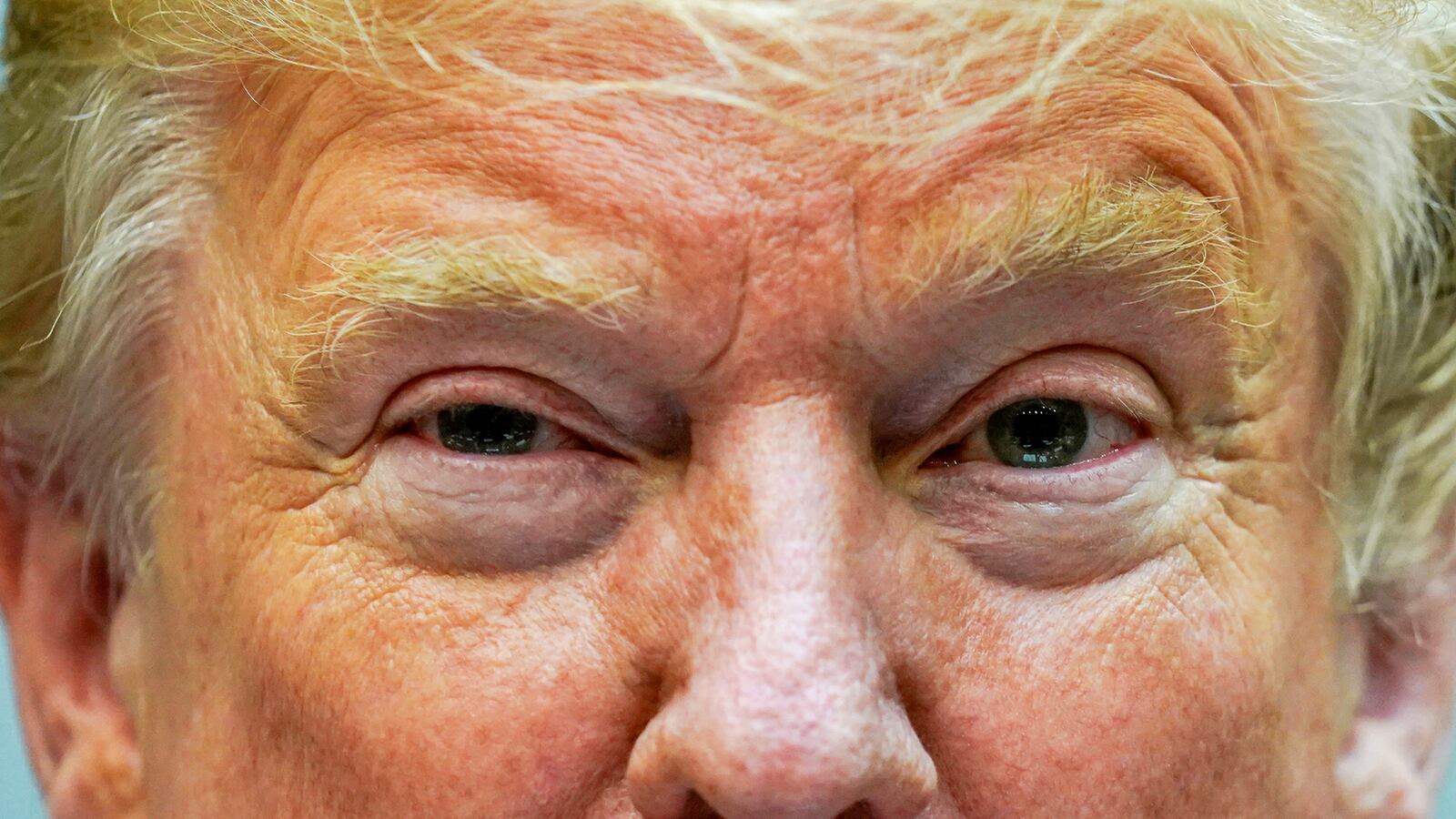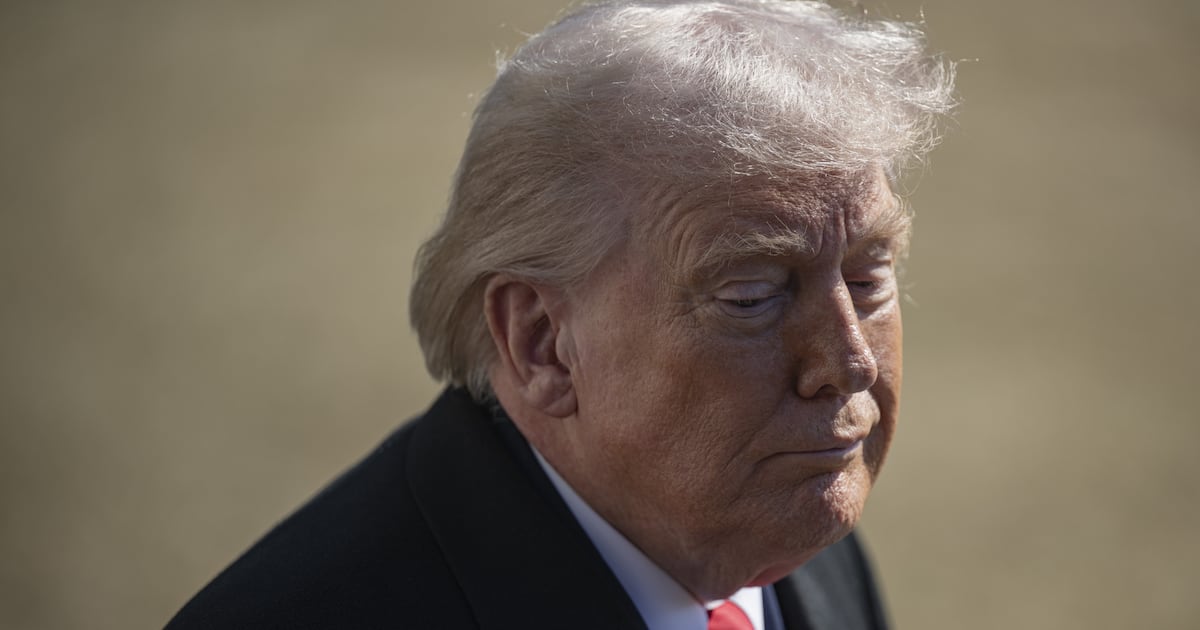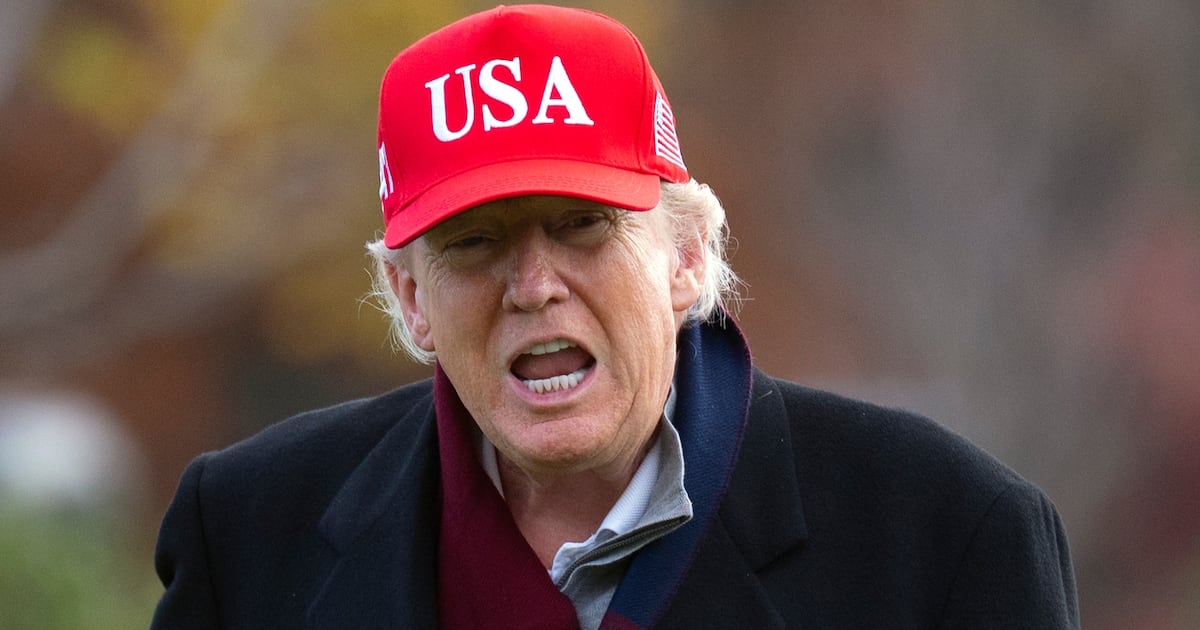Back in March, President Donald Trump tasked a trio of Republican senators with crafting a “beautiful” new bill that would, once and for all, replace Obamacare with… something else.
At the time, those lawmakers—Sens. Rick Scott (R-FL), John Barrasso (R-WY), and Bill Cassidy (R-LA)—didn’t exactly embrace the effort with open arms. But they didn’t dismiss it out of hand either, declaring they’d work with the White House on a number of health-care initiatives.
Three months later, it’s clear that replacing the Affordable Care Act could not be further from GOP senators’ list of top priorities. In brief interviews with The Daily Beast on Wednesday, the senators that Trump publicly tasked with finally nuking Obamacare were glad to talk about anything on health care—except for the bill that they’d be asked to write.
Scott, for one, said that what he is “focused on is things that are going to drive down costs. Everything I’m going to do on health care is going to be focused on costs.”
Dashing into a Senate elevator, Cassidy said “We’ve been working hard on a lot of issues, surprise medical billing, lowering drug costs, et cetera, which I think sets the stage for doing other things to help make health care more affordable.”
Barrasso, the number three Republican in the Senate, said he and his colleagues are talking to Trump not about Obamacare repeal, but are diving into—you guessed it—health-care costs.
“I was at the White House with the president more recently and we’re talking about surprise medical billing, working in a bipartisan way on that,” Barrasso told The Daily Beast.
That the three lawmakers told to come up with an Obamacare replacement bill have so far fired blanks is, by this point, to be expected. The post-Obamacare-passage era of health-care reform is littered with failed attempts to undo the law.
Republicans and Trump himself surely know this. Burned by the failed 2017 effort to get rid of the Affordable Care Act—and its role in fueling Democrats’ takeover of the House in the 2018 midterm elections—GOP lawmakers came into the new legislative session this year carrying no illusions that another run at sweeping health-care reform was in the cards.
But on March 25, Trump’s Department of Justice changed the landscape with a letter to a federal court backing a lawsuit that could potentially nullify the entire Affordable Care Act, including the popular parts that Republicans have come around to campaigning on, such as protections for those with pre-existing conditions.
The next day, President Trump traveled to the Capitol to tell Republican senators that health care would be a top priority. By the end of that week, he tweeted that “ObamaCare is a disaster, far too expensive and deductibility ridiculously high - virtually unusable! Moving forward in Courts and Legislatively!”
When GOP leadership encouraged the White House to not push forward, Trump simply altered his approach. The party, he said, would produce a plan before the election but not vote on it until afterward. But there is no sign that the legislation is anywhere close to being crafted, let alone being seriously contemplated.
According to three people familiar with the situation, the Trump administration, including the president himself, have largely lost whatever interest there was in the push. Nowadays, in strategy and messaging discussions in the White House political operation, the 2020 campaign, and Trump-aligned outside groups, there is barely any discussion for making Obamacare replacement a top issue heading into 2020.
In fact, the discussion that has occurred in recent months is almost entirely focused on making sure replacing the ACA is in the rhetorical backseat. One person in Trump’s political orbit stressed that there is widespread appetite to run against progressive wish-list items such as Medicare for All or “socialist” healthcare policies—but not to run on Trumpcare, or any other Obamacare replacement measure, due to the crushing defeats the quest has brought for the GOP over the past two years.
The Trump White House, for its part, isn’t even bothering to deploy the big guns for this supposed replacement push. According to a senior administration official, Vice President Mike Pence hasn’t been a player on this, as he had been on past health-care efforts of the Trump era, and his office’s involvement has been largely staff-level.
In a statement to The Daily Beast on Thursday, Kayleigh McEnany, the Trump campaign’s national press secretary, praised “President Trump’s free market policies” on health care, and blamed Democratic lawmakers for any lack of legislation from Republicans. “President Trump will continue to fight for healthcare choice and affordability, doing all he can in his executive capacity since it's quite clear that Nancy Pelosi won’t allow a vote on any legislation backed by President Trump,” McEnany added.
That attack on Democrats’ policies is eagerly echoed in the halls of Congress by GOP lawmakers. But lawmakers from both sides of the aisle are hardly acting like bipartisan action on health care is not possible.
The health-care cost push talked up by Sens. Scott, Barrasso, and Cassidy appears to be more than just mere talk. Democrats on both sides of the Capitol have signalled a willingness to work with Republicans to tackle the skyrocketing cost of prescription drugs, as well as the phenomenon of people getting slapped with hefty, unexpected bills from emergency rooms and hospitals.
Sens. Lamar Alexander (R-TN) and Patty Murray (D-WA)—the chair and ranking member, respectively, of the Senate’s health panel—are behind legislation that would address some of those issues. At various points, Trump has expressed support for all of those measures.
Any health-care legislation, including a sweeping Obamacare replacement, would pass through Alexander’s committee. And an aide for Alexander told The Daily Beast there is no Obamacare repeal proposal in the works, and that the committee is instead focused on reducing health-care costs.
Looming over the GOP’s Obamacare fits and starts is the lawsuit to overturn the law, now backed by the administration, where a ruling from the Supreme Court could come down as soon as July 2020. If the courts end up facilitating Obamacare’s crumbling, then the legislative calculus on finding a replacement may very well change. But until then, Republican senators say that they and the president are fine holding off on a repeal-and-replace quest, as long as they’re working for reforms elsewhere.
“He wants results,” Barrasso said of the president. “He wants to be able to point to a success.”









